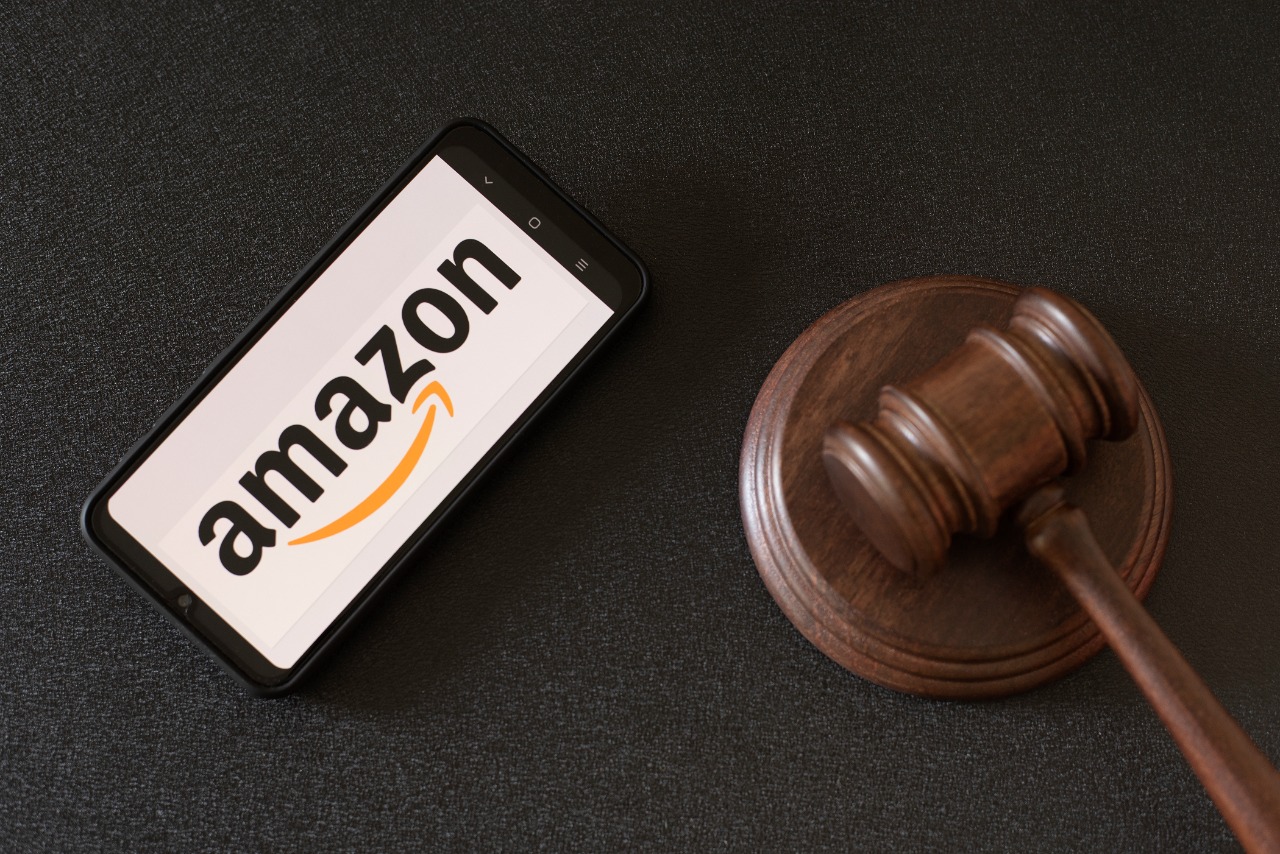No business is safe from lawsuits, not even Amazon sellers. Lately, more and more Amazon sellers are getting sued—and many weren’t even aware they were doing something wrong until it was too late!
So, this guide clears some things up about the legal risks of selling on Amazon. First, we’ll cover the most common reasons Amazon sellers get sued so you can protect yourself and avoid making those mistakes. Then, we’ll explain the best ways to respond if a lawsuit is already brought up against you.
Read More: A Guide To The Best Solution Providers for Amazon Sellers
Top 3 Reasons Amazon Sellers Get Sued
1. Patent Violation
In retail, a patent is the legal ownership of a product design: only the patent holder can manufacture and sell that product. So if you see some new product being sold online and think, “I can make that myself and sell it,” the truth is you can’t—at least not legally—because you don’t own the patent.
That’s all well and good because most sellers acquire their products legitimately and don’t consciously copy another patented design. But sometimes, people end up selling patented products without even knowing it.
This is especially true for products manufactured in China. The patent and copyright laws in China are not as rigorously enforced as in other countries (and there’s also a cultural component that encourages “sharing”).
What frequently happens is a U.S. patent is copied in China, where U.S. patent law doesn’t have enough power to intervene fully. Those products are then shipped back to the U.S. to third-party sellers, often through a white label or drop shipping. But when those products are sold under U.S. jurisdiction, they become patent violations.
So always double-check the legality of what you’re selling, especially if you’re importing it.
Read More: 100s of Amazon sellers donated their products to Charity!
2. Copyright Violation
Just like patent laws protect product designs, copyright laws protect creative works like images, music, writing, etc. And just as patent violations are a risk for Amazon FBA sellers, so too are copyright violations.
One of the most common copyright violations involves using copyrighted images on unlicensed merchandise. For example, illustrations of Marvel’s Iron Man are copyrighted; if you were to sell children’s shoes with images of Iron Man on them without permission, that violates the copyright. Only authorized merchandise has a license to legally use those images for commercial purposes.
Again, most of the time, this is common sense except when importing products. Manufacturers in China are typically less concerned with copyright images, but the U.S. legal system may not intervene until those products are sold in America by a third party. So if you’re importing products, double-check where the visuals came from.
3. Physical Injury
Amazon does not have a buyer-beware policy. The most dangerous products like firearms and chemicals are prohibited from the Amazon marketplace, but there’s still a gray area of products that have a chance to harm someone. Products with blades, pointy edges, or dangerous levels of heating can be potential health risks and, therefore potential legal risks.
For starters, sellers must follow the Amazon protocol for selling safety-risk products. This involves submitting both an application and the proper documentation on the safety of the product.
Moreover, it’s recommended that sellers insure themselves. In fact, Amazon requires that sellers who earn over $10,000 in three months get at least $1,000,000 in insurance coverage. Even if you don’t meet the minimum requirement, if you’re selling risky items it’s worthwhile to insure yourself as much as you can afford.
The safest alternative, however, is to avoid risky products and stick with simple, harmless items.
How Amazon Sellers Should Respond to Lawsuits
In the event that you’re already being sued, there are two main options open to you: file a response or get it dismissed.
File a Response
First off, if you are selling as a corporation or LLC (or other business entity), you must be represented by a lawyer. Sole proprietors have the option to represent themselves, but even so, it’s not recommended unless you’re experienced in legal matters—otherwise, the professional lawyers on the other side will take advantage.
In your official response, you’ll have to reply to each allegation separately. You can either admit wrongdoing, deny it, or claim you do not have enough information to confirm or deny the allegations.
Whether your response has the outcome you desire depends on the particular allegation and the circumstances surrounding them—again, partner with a good lawyer and they’ll suggest the best course of action.
Dismiss the Lawsuit
Often, getting the lawsuit dismissed is your best option, although it’s not always applicable. There are two main ways for an Amazon seller to get an Amazon lawsuit dismissed.
First, you can have the lawsuit dismissed on the grounds of jurisdiction. If you’re unfamiliar with the term, jurisdiction simply refers to a specific court, usually a geographical area. So if you’re being sued in New York state, but you don’t have any business connection to New York, you could try to get the lawsuit dismissed because the jurisdiction of New York doesn’t apply to you.
Second, you could request the case against you be dismissed “on the merits.” This refers to lawsuits involving multiple defendants, where the claims are aimed at other parties and not you specifically. In this case, a good lawyer will be able to review the wording and individual claims to see if this approach could work for you.
Hi there! I’m the content marketing and branding specialist for AMZ One Step. I work hard to create engaging and informative content that helps our readers learn more about Amazon selling and how to make the most of their businesses. I love spending time with my family and exploring literary works when I’m not writing or working on projects.




